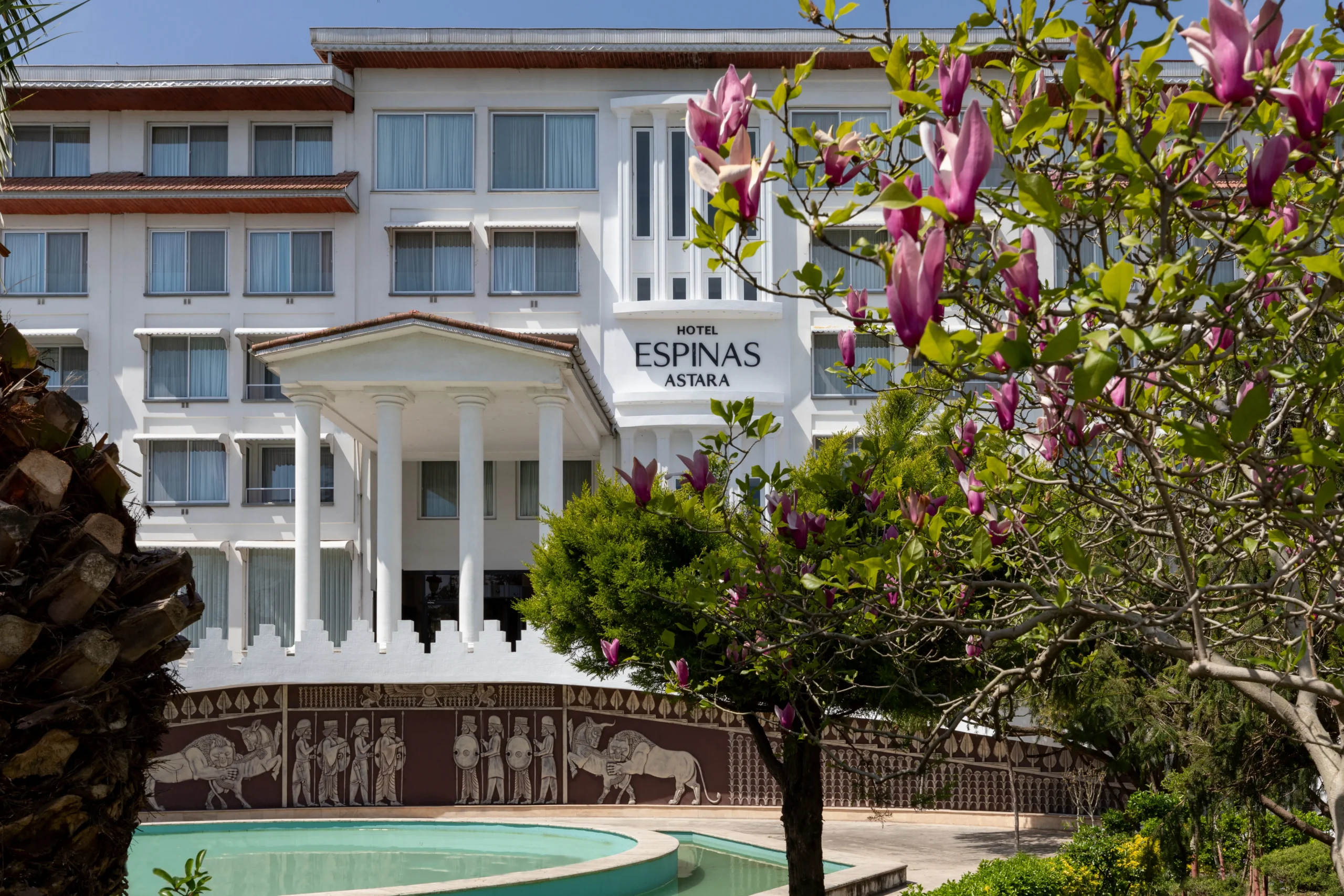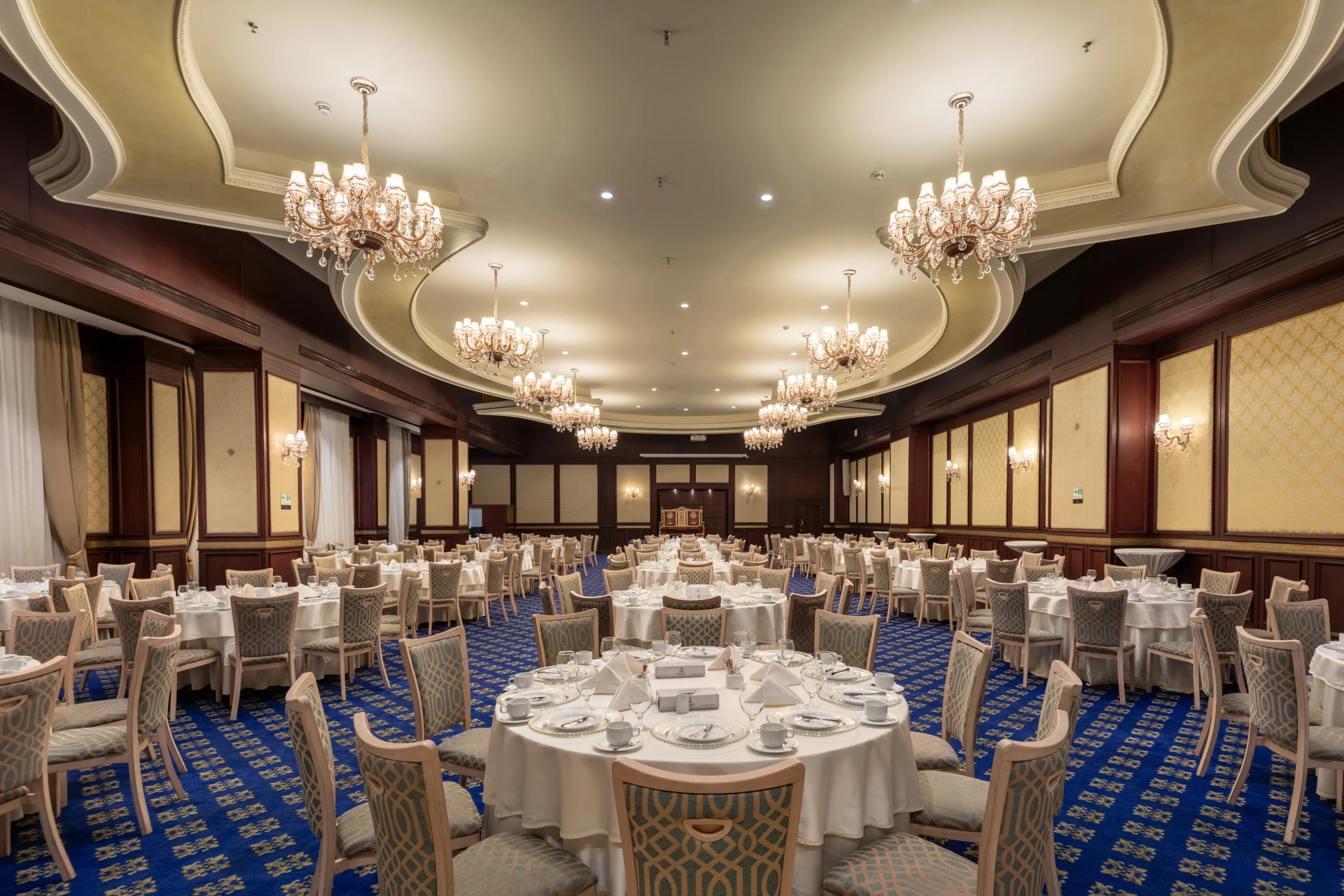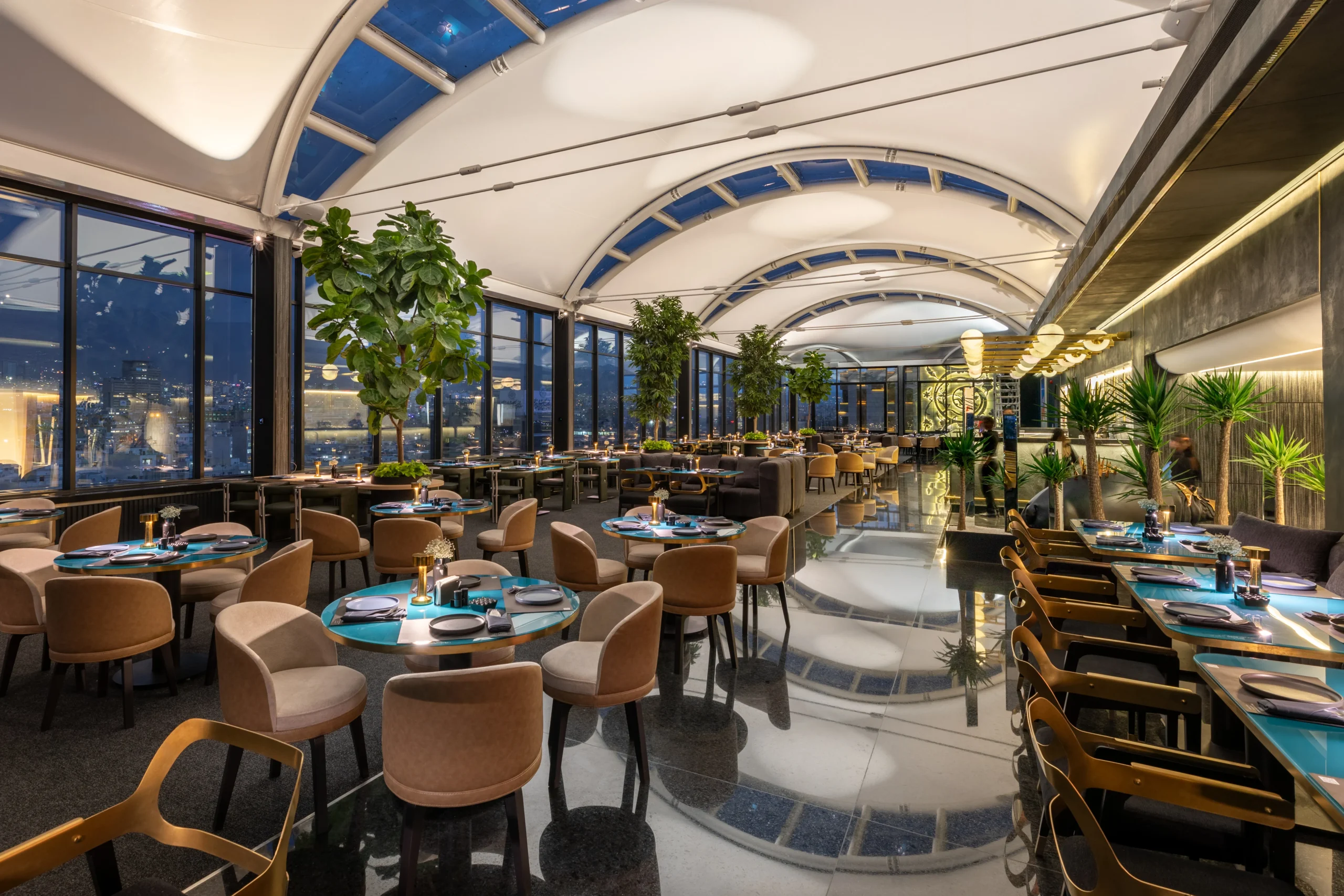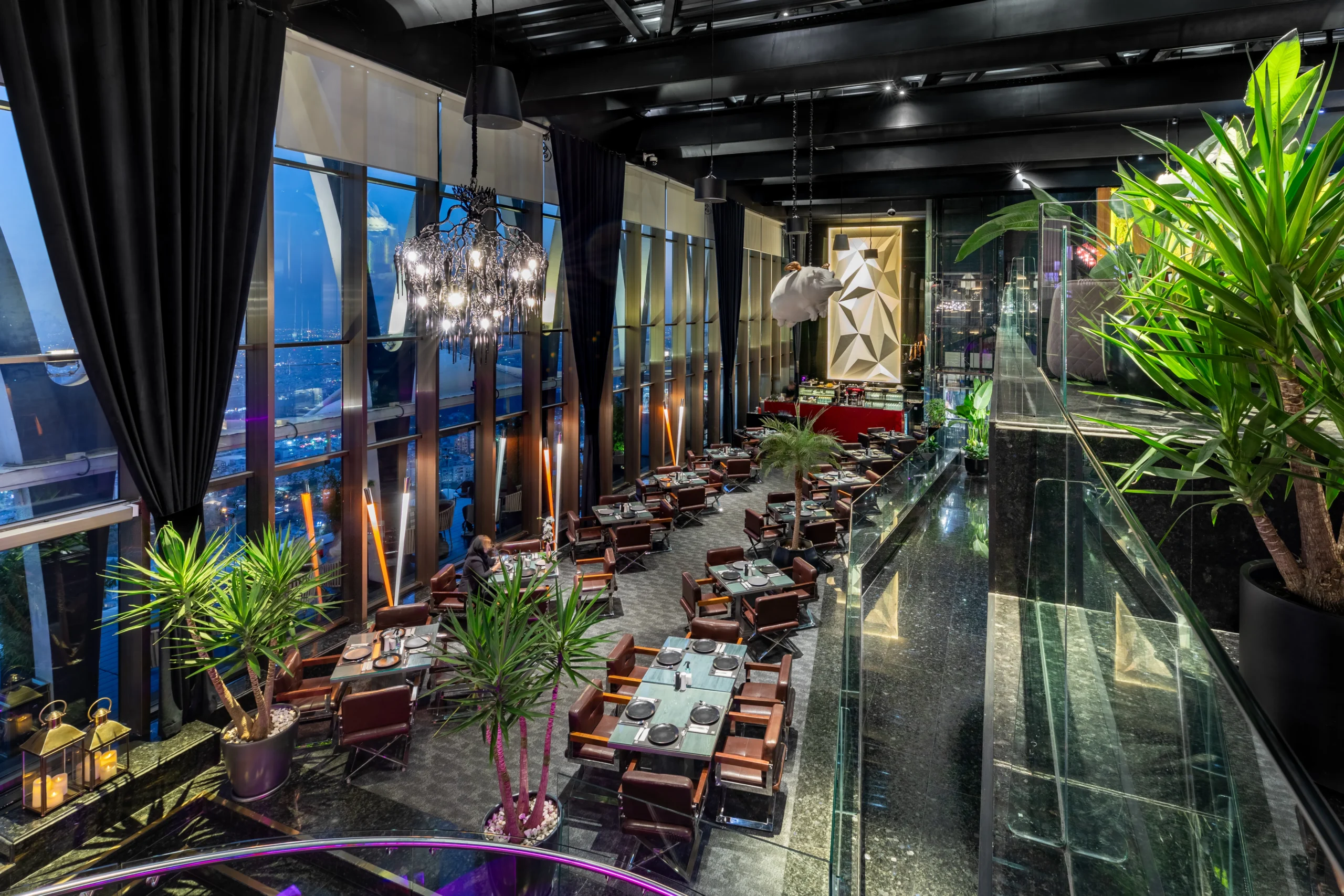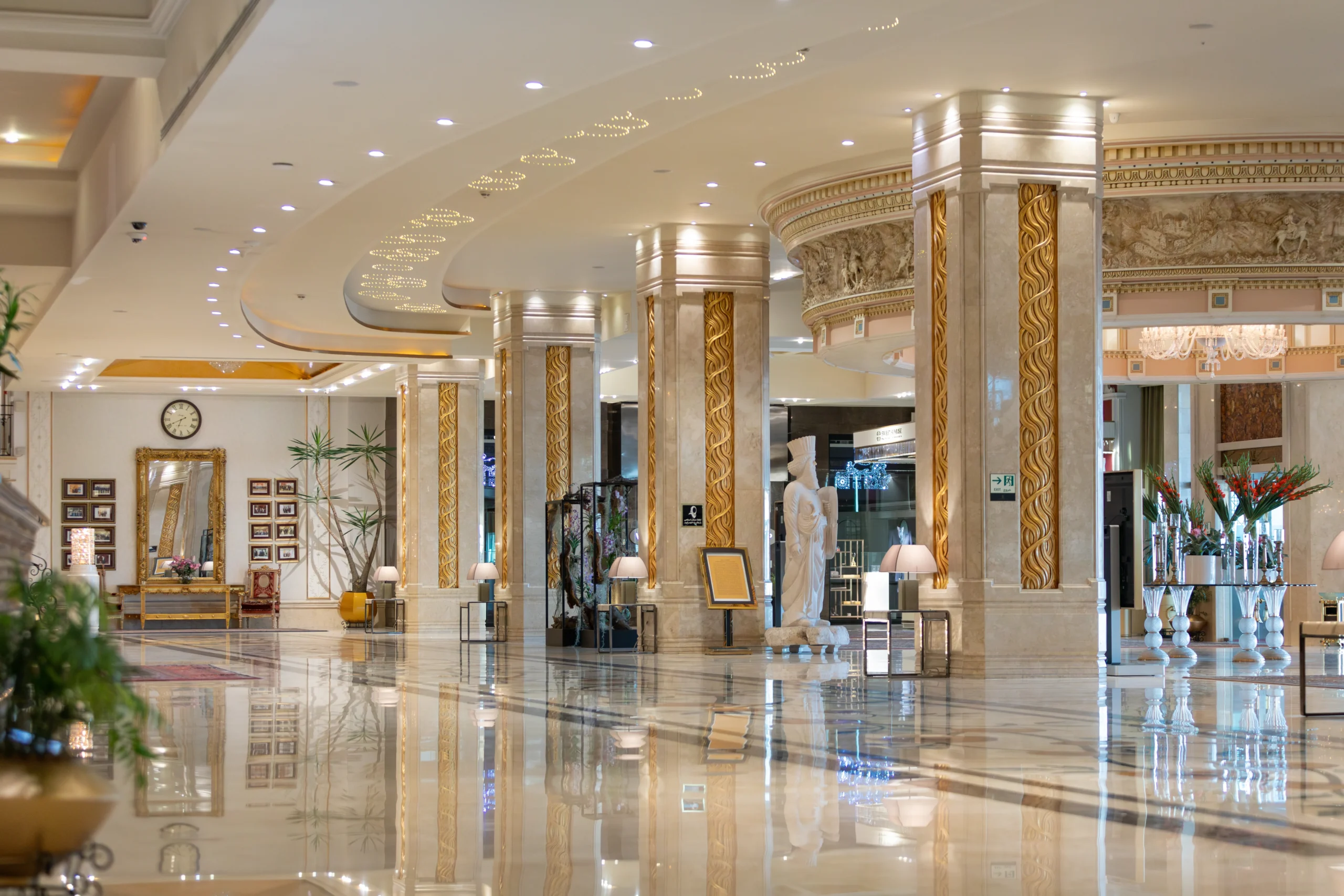Ali Asghar Amiri, Chairman and Founder of Espinas Hotel Group, was born in 1955 in the city of Yazd and finished his studies in Architecture and Engineering. He is an entrepreneur in different sectors and industries, including residential real estate, commercial real estate (hotels, shopping centers), textile, import and export. Mr. Amiri is a veteran investor and businessman and a key figure in the Iranian business world. His efforts have been mission-critical to the establishment of Espinas Hotel Group as the leading hotel company in Iran and to the advancement of the Tourism Industry in the Middle East. He established the first luxury segment of hotels in the country, led by the world-famous Espinas Palace Hotel. He recently initiated the construction of Iran’s new generation luxury Hotel, Espinas Royal Hotel, a mixed-used real estate development comprising 375 hotel rooms, 60 apartments, an office trade center, a wellness center, six restaurants, a medical spa, conferences & auditoriums and a boutique mall, in Tehran.
1. Thank you for taking the time to do this interview with Trends despite your busy schedule; we really appreciate it. Please tell us about yourself, your background, and your journey into the field of hospitality and real estate development.
I come from an industrial background, starting at a very early age in a textile factory that I eventually came to own. From there, and due to the success of that venture, I started a classic progression in the real estate world by starting to acquire land in Tehran (where I eventually relocated into) and building villas, transactions that over time became bigger in terms of square meters and land size. I eventually disconnected from the industrial sector and fully focused on developing my activities in the commercial and residential real estate fields. They have been my passion since my early days, as they give me the opportunity to invest in fixed assets that add value and character to the cities and to the country itself. Eventually, after some successful investments in residential real estate, I decided to start my first hotel, a 116-room property in Astara, Gilan, which is still operating after 30 years and is now a quite famous eco-resort next to the Caspian Sea. After this successful hotel experience, I decided to take an even bigger step in commercial real estate and go for a hotel in downtown Tehran, the Espinas International, a five-star hotel with 274 rooms, quite famous for hosting all main political delegations and diplomatic dignitaries from around the world.

These two hotels became the strong foundation to take a decisive step into developing our most ambitious project to date, Espinas Palace Hotel, a luxury 400-room property in northwest Tehran. Espinas Palace is an iconic property, the leading hotel in the country and the one that hosts leading global personalities, from politicians to actors, football players and, most recently, a full embassy. This new generation hotel is built and operated under the most demanding international service standards. Espinas Hotel Group became an established brand, headquartered in Espinas Palace Hotel. As ambition is perennial, we recently started to build Espinas Royal, a 150-meter tall two-tower building, 150,000 m² construction area, which will be a mixed-use development including a luxury hotel, apartments, office center, shopping mall, auditoriums, conference center and medical spa. As you see, all my investments have grown, each one more ambitious and bigger than the previous one. I continue to believe in Iran and to take risks in and for Iran, for its development, for the development of its talented workforce and contributing to make my country ever more economically robust, regardless of all the challenges.
2. The hospitality industry is risky everywhere in the world and the few who succeed do it only with passion, vision, careful planning and flawless execution. In Iran, it is much riskier due to geopolitical developments and economic ups and downs. What inspired you to pursue a career in this field in this country? Was it by accident or design? Are you happy with the choice you made or not?
As explained above, it was a call of passion, a will to imprint my own signature and vision in the country’s landscape and architecture. Developers and business leaders are never fully happy or satisfied. There is always a will to do better and to do more. I feel proud of my accomplishments and the accomplishments of my teams, but I also feel the urge to continue doing more. A passionate drive to build and develop has, fortunately, accompanied me throughout my existence. I have built a significant legacy so far with the help of many and in the best interest of the community. Still, I will continue and even accelerate because we have stronger structures, we are better organized, we have better talent, and therefore we can aim even higher. Espinas Royal Hotel, the new project in Velenjak, will be the epitome and tangible personification of that.
I take the opportunity to add that Iran has a built-in culture of hospitality and has been a land of tourism and passers-by for millennia. The old “caravanserai”, or road inns, are a great statement to that, as part of the trade routes that spread through the country, namely the Silk Road. This created a sense of legacy, heritage and responsibility towards the clients, to provide them with care and attention even to levels not rendered to oneself. This is certainly a competitive advantage provided by Iranian culture and sociology that is also part of the reason why I designed my life and work around this cultural concept and this beautiful hospitality industry. History played its role and I want to be a continuator of our ancient traditions, upgrading them and updating them into the present and future.
3. The pandemic brought unprecedented challenges to the hospitality industry. How did Espinas manage to not only survive but thrive since then? What is the business model that has made Espinas a financial success? Who is your main target market and how do you attract and cater to them?
The global pandemic was a very challenging and demanding experience for us all, both financially and emotionally. Iran was one of the first countries to report infections and we experienced a total loss of clients over a period of three days. We had to quickly prepare an emergency plan. We tried to keep as much staff as possible because we knew business would eventually resume. So, we adjusted our ranks minimally and implemented all hygiene protocols, as per the most demanding international standards. The official approach of Iran to deal with the virus was competent and somewhat less restrictive than that of other countries, such as China. Therefore, we were back to normal operating levels after one quarter, and even with more staff than before the pandemic. We were fortunate that business was not disrupted for a long period.
Having said the above, Espinas is a strong and stable company that has proven resilient and adaptable to different types of crises. The shareholder stability and a unified growth vision have been a key success factor. The talent and commitment of our teams are also essential. We have lost significant international markets (namely, European markets) due to sanctions and geopolitical tensions, and we have managed to replace some of them with proximity markets (Iraq, Kuwait, Saudi Arabia, Oman, Qatar, and Turkey) and markets from friendlier countries (Russia and China). This speed of adaptation and agility has also been a critical element for business survival. We do not dwell on past strategies and past performance and we are always prepared to swiftly adapt to new business and political contexts. Nostalgia is a bad business strategy.
I finalize by saying that all challenges can be overcome by believing in oneself and one’s own capabilities. Self-confidence plays a role, and going strongly forward will counteract any obstacles. My recommendation to the new generations is exactly that one. Believe in yourselves and build upon it. Convert that into products and services and always surpass guests’ expectations by continuously adding value to whatever you do for you and them.

4. Establishing a hotel is not just about providing a place to stay but crafting an experience. What is the core concept behind the hotel? Why did you choose the name “Espinas”? What is unique about an “Espinas” experience? What differentiates Espinas hotels from other hotels in Tehran?
Espinas is the name of one of the highest mountains in northern Iran. Because our first hotel was there, it made sense to start using this name, which is now a household name in the Middle East. Relative to unique experiences, all our hotels are managed under The Leading Hotels of the World® service standards, adapted to the Islamic culture and to the Iranian context. The care and attention to managing the physical aspect of our hotels and creating refined and sophisticated ambiances is also a key element in delivering meaningful experiences to all our guests, including hotel guests, restaurant, concert hall and banqueting guests. Overall, our guests’ satisfaction and online reputation are consistently in the range of 94% to 97%, with our hotels always occupying positions in the Top 3 of Tripadvisor. The diversity of choice has also been a main differentiator, as we operate restaurants with multiple concepts, rooms that can be offices or even embassies, banquet halls for both corporate and social events, a concert hall for shows and also for exhibitions and room floors with different concepts and price levels. Last but not least, an important part of our business DNA is to innovate by adding new facilities every year to keep our hotels always vibrant and competitive. This year, we added Sky Lounge Fusion Restaurant in Espinas International Hotel (a rooftop lifestyle restaurant), Fun Center & Sports Bar in Espinas Palace, and Sunrise Café, a winter garden all-day dining Brasserie & Patisserie.
5. Managing a hotel comes with its own set of challenges and setbacks. What major hurdles have you faced while establishing and running Espinas hotels? Which project has been the most challenging and how did you manage to overcome the challenges?
The first set of hurdles starts whenever I decide to initiate a new project. The real estate process is slow and bureaucratic in Iran. It takes patience and resilience to get all the necessary approvals and licenses. The economic context should be more favorable to the private sector to spur higher levels of investment. Financing is also not done in optimal ways, and the banking sector has still to evolve into more sophisticated operating levels to be more supportive of private sector initiatives and risk-takers. After all is licensed and built, the operational hurdles start.
The main challenge in the hotel sector is that the country is not yet training hotel professionals in modern ways. Therefore, we need to train all our staff by ourselves. This makes us incur additional costs that hotels in other countries do not need to, providing them with competitive advantages that are not available to us yet. We have been trying to partner with renowned Iranian universities, but the challenge starts at the teachers’ level. The teachers are disconnected from the fundamentals of this industry and therefore, they cannot train the students appropriately. Training is mostly academic and theoretical and this adds little value to the hotel and tourism value chain.
As to challenging projects, because of its scale and size, Espinas Royal Hotel has been so far the most challenging one. But we are well on the way and about to start building the foundations. The excavation phase has finished and progress is on the way. We expect to launch it in 2027.
In conclusion, I would underline that going through challenges makes us stronger and wiser in materializing on any opportunity. No challenge is bigger than our skills and capabilities. Underestimating problems and building on our dreams is the key to a balanced life and, in this case, balanced and successful business ventures.
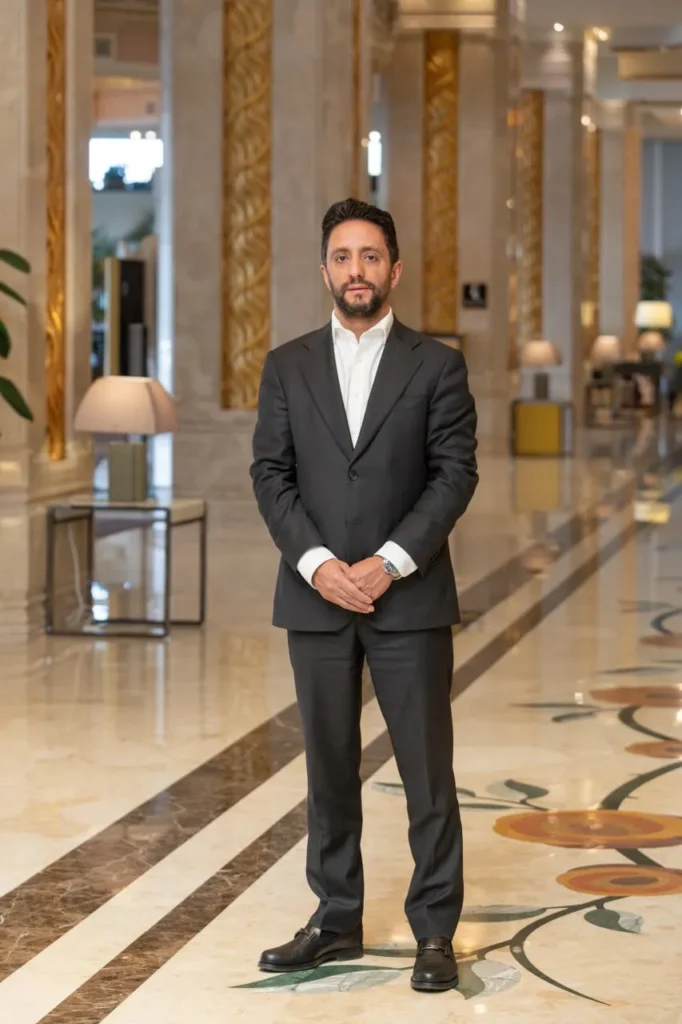

6. Having a European manager in Tehran, especially during tough economic times, including Covid, sanctions, etc., was a rather bold move. Why did you decide to acquire expertise from foreign professional hotel leaders, and what impact has that had on your hotel group?
We have always tried to keep Espinas Hotel Group as international as possible, being managed under the most demanding standards and benchmarking to the leading hotel chains in the world, whether by Iranians or foreigners. It is talent and skills that define who manages what, not place of birth. At this point in time, we are second to none, whether in product and facilities or in management style and technique. We are also highly advanced in financial management and corporate finance techniques, as if we were a stock market-listed company. We like to believe that this success is not only because of one or another international person, but because of the shared efforts of all our team members, working towards shared and transparent goals and benefits. At this point, out of 1,000 employees, we only have one single expatriate, meaning that our success is more than 99.9% due to the endogenous Iranian talent and workforce.
Having said the above, I would add that we have been experiencing a very strong and trustworthy relationship with Espinas Hotel Group CEO, mutually beneficial, in an environment of shared business vision, professionalism, ethics and strong execution capabilities. The relationship of this international CEO with the Board of Directors is a critical success factor, out of which all benefit, including all teams and the country-at-large. May it continue for the foreseeable future.
7. Guests often seek memorable experiences beyond just accommodation, such as recreation (sports/gaming…), concerts, events, shopping, etc. Can you elaborate on Espinas’s recreation and entertainment aspects?
Indeed so. Because of this, we recently added a Sports Bar & Fun Center, with bowling facilities, 3D Gaming, advanced car simulators and PlayStation® centers, as well as recreational games. We operate one of the country’s largest Concert Halls, with 2,700 seats. And we have close to 20 banqueting halls, as well. This provides guest diversity and business complementarity to help us weather both seasonality and also geopolitical challenges and tensions.
8. The political landscape can significantly influence the hospitality sector. With Donald Trump coming to office for a new term, what potential effects do you foresee on the hotel business in Iran? How might this impact your strategies for Espinas Palace and its operations and what strategies have you(are) implemented(ing) to ensure the hotel’s sustainability despite these challenges?
We believe that whomever the American President may be, our business must be resilient to it. The first term of Trump was very toxic for Iran and created lasting challenges in the economy that reverberate to this day. We have no expectations for his second term and we are fully focused on our own strengths and capabilities. We prefer to stay away from politics and discuss only business and economic issues. As mentioned, our business model is agile and ready to adapt at any time, to any circumstances. We do not design our strategic management planning or budgeting processes based on any President from any specific country. After almost 30 years in the business, we are still here, still investing and still growing, despite all adversity. We managed to grow under any President and we will strive to continue doing so.
I would, however, like to add that Mr. Trump is a more transparent person than the previous US President. Although highly erratic, he is blunter, more pragmatic and seems to be trying to implement new solutions to old problems. Whether they are good or not is something that yet remains to be seen through his actions, rather than through his words, and over a prolonged period. As mentioned, we cannot forget the highly negative role this person had towards Iran in his first mandate, so our expectations are null.
9. What is next for the Espinas Group (further domestic expansion, going regional)? We have heard about Espinas Royal (Velenjak, Tehran), which is set to redefine luxury hospitality in this country. Please tell us about that (concept, launch date, etc).
Espinas Royal Hotel will be the crown jewel of Espinas Hotel Group and Amiri Global Holdings. It will be its largest asset, the most ambitious one and the most financially demanding one. It will be a mixed-use development, incorporating all the global leading ideas in modern real estate development. It will be a destination hotel, including a luxury hotel, luxury apartments, office center, auditoriums, banqueting halls, restaurants with different concepts, a boutique market and also a medical spa. The medical spa will be Espinas’ first formal step into the medical tourism high-value market segment. We hope to launch it by the end of 2027, and work is well in progress. We will add some innovations like branded floor types for different market segments and price levels and we are also adding an office center management facility. We may come to have time-sharing apartments, as well. For this project, we worked with both national and international architects and engineers, namely Italian, German and Asian ateliers. We are certain it will be the next level in the Iranian hospitality industry and an additional element of pride for the nation.
10. As you look to the future, what legacy do you hope to leave within the hospitality industry in particular and the country in general? Any advice for the next generation of hospitality investors, professionals and the overall landscape of the industry?
I believe I still have many years ahead of me, together with my sons and teams. We are energetic, well aligned and focused on common purposes and goals. The legacy is being built on a daily basis and it is both material (our iconic and differentiated tangible assets) but also immaterial (our brands, our reputation, our management procedures, our sales and finance advanced techniques). We keep innovating in all fields, including BI and AI. We want to continue integrating new concepts from abroad and also develop our own endogenous and home-grown concepts. This work culture, business ethics and development mindset is what guarantees me that my legacy will continue growing into perpetuity, under mine and the coming Amiri generations and teams.
I will finalize by saying that all those with available investment capital should continue prioritizing the country, given the size and scope of the endogenous resources and capabilities, whether natural, human, or financial. I would say that should go strongly into the tourism sector too, to assist in upgrading and keeping an always fresh and competitive supply. This is what will continue making optimal for the economy and the society. McKinsey & Co.®, in its famed consulting research papers, called Iran “The US$1 trillion opportunity” as soon as the JCPOA phase was initiated. Since then, a lot has happened, and not all of it has been positive. It also means that the size of the opportunity is even bigger nowadays and into the future.



